NC Space Grant Announces 2020 Faculty Research Grant Awardees
NC Space Grant is pleased to announce the four recipients of the 2020 Faculty Research Grants. These faculty members will be examining topics in mechanical, materials, biomedical and aerospace engineering, and are aiming to make important contributions to the aerospace field. NC Space Grant will support each faculty member’s research for a two-year period, enabling more ambitious projects.
NC Space Grant created the Faculty Research Grant in order to support faculty who want to pursue new research directions aligning with NASA’s Mission Directorates, all while actively engaging with undergraduate and graduate student researchers. Previous faculty support targeted primarily new faculty, so NC Space Grant is pleased to be able to broaden this opportunity to include established faculty and to increase the support to cover longer projects with the new, two-year grant span.
This support for faculty researchers aims to incentivize established and emerging researchers who want to develop new projects and collaborations with partners spanning different universities and colleges, NASA centers, state and federal research facilities, the aerospace and aviation industries, formal and informal education partners, state and local government agencies, and more. The faculty researchers will also meaningfully engage undergraduate or graduate students, or a combination of both, in their research endeavors.
NC Space Grant is pleased to recognize the 2020 Faculty Research Grant awardees:
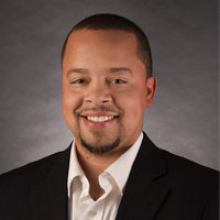
Rodward Hewlin Jr., Ph.D.
University of North Carolina at Charlotte
Development of a Traveling Wave Ferro-Microfluidic Device for Particle Manipulation and Sorting in Gravitational and Non-Gravitational Environments
Hewlin and his team will address fundamental design aspects and device characterization of a compact, low-cost, flow-through programmable ferro-microfluidic device for potential onboard bio-diagnostics and health assessment of astronauts on space stations and space craft. The biomedical and space application of his proposed device will be to provide a better understanding of how spaceflight affects living systems in a space craft such as the International Space Station or in ground-based experiments, and to prepare for future human exploration missions far from Earth.
In 50 years of spaceflight, medical examinations have revealed several health problems for astronauts, including bone and muscle loss, cardiovascular dysfunction, immune function and radiation effects. Currently, development of bio-diagnostic tools and testing capabilities is needed, to assist in real-time health assessments of astronauts that could respond to current needs and evolving priorities. Compact, efficient, reliable, adaptable diagnostics will be crucial for maintaining the health of a spacecraft’s crew and their environment. Hewlin aims to address these needs through his research, and hopes his team’s work may also have a positive impact in other health science and STEM related areas such as agriculture, water quality, advanced manufacturing, marine and coastal sciences, defense and military security, pharmaceutical engineering and energy.
As part of his support from NC Space Grant, Hewlin is recruiting students from underrepresented groups at Central Piedmont Community College and UNC-Charlotte’s engineering program to act as research assistants, providing them with a challenging and rewarding research opportunity during the summer. Working with these students, Hewlin aims to develop a model for research-based learning that will reinvent and re-energize the undergraduate experience, demonstrate the multidisciplinary character of modern engineering, and stimulate student’s intellectual growth. Ultimately, Hewlin hopes this effort will enhance recruitment and retention for engineers, including minorities and underrepresented groups, and will motivate students to commit to a life-long process of learning, evolving, advancing engineering and benefiting society.
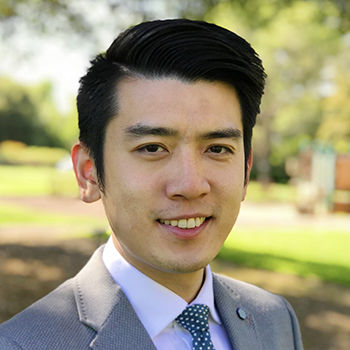
Po-Chun Hsu, Ph.D.
Duke University
Bio-Inspired Vascular Structures for High-Rate Performance Batteries by Deep Learning and Additive Micro-Manufacturing
Hsu and his team will be using machine learning to investigate new methods, inspired by plants and the human body, to deliver fast-moving ions to battery electrode materials to increase performance.
High rate-performance and reliable batteries are indispensable for aeronautics and space missions. It is the essential element to deliver strong thrust and torque for extraterrestrial rovers and electric aircraft, and it can also enable ultrafast charging to increase the duty cycle of these devices. To achieve high power, the battery electrode materials need to be supplied with sufficient fast-moving ions. Inspired by nature, Hsu and his team will fabricate the vascular hierarchical porous structure that is similar to blood vessels, lung alveolus, and plant roots, which fresh chemical species are supplied by wide channels followed by minuscular channels for uniform distribution.
They will first use machine learning and electrochemistry simulation to quickly predict the battery performance and also to inverse-design the parameters of the most efficient vascular electrode structure. The computed vascular microstructure will then be micro-3D-printed to validate the performance comparing with the human design using traditional wisdom. By connecting artificial intelligence and additive micro-manufacturing, Hsu envisions this research will significantly broaden the design parameter hyperspace of high-rate energy storage devices and, in a broader sense, provide an effective general approach for solving multi-scale and multi-physics problems in aeronautics and space applications.
Included in Hsu’s award will be support for his current Ph.D. student, Genesis Higueros, for two years of her work. She will perform the proposed research, build collaborations, write manuscripts and attend conferences to exchange the latest progress in battery research, finite element computation, machine learning and additive manufacturing. In the longer term, Hsu envisions Higueros will go beyond batteries and apply the deep learning-guided vascular structure design to other space technologies for more efficient transport and energy utilization.
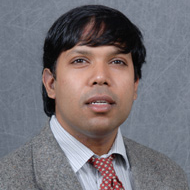
Roger Narayan, Ph.D.
North Carolina State University – University of North Carolina at Chapel Hill Joint Department of Biomedical Engineering
Stability of Three-Dimensional Printed Polymers Under Gamma Irradiation
Narayan and his team will examine mechanical and chemical changes to two additive manufacturing-produced polymers after exposure to gamma irradiation. Narayan will collaborate with the NASA Glenn Research Center on mechanical and chemical characterization of the additive manufacturing-produced materials.
Additive manufacturing offers several benefits over conventional approaches for in-space manufacturing. For example, data obtained from on-site scanners or remote locations may be utilized to create customized solutions in response to a given need. The pieces of equipment for additive manufacturing of polymers have small footprints and can be located in conventional (e.g., non-cleanroom) settings. However, damage associated with ionizing radiation from galactic cosmic rays and solar particle events may limit the functionality of additive manufacturing-produced polymers for space applications. Mitigation of radiation effects is a centerpiece of NASA’s space exploration science research agenda.
Narayan will also work with a graduate research assistant, who will travel between the NASA Glenn Research Center and NC State to complete the project activities, and will have opportunities for academic, career and personal mentoring. The assistant will present research results to young people and their families at monthly “Science Saturday” events at the North Carolina Museum of Natural Sciences in downtown Raleigh.
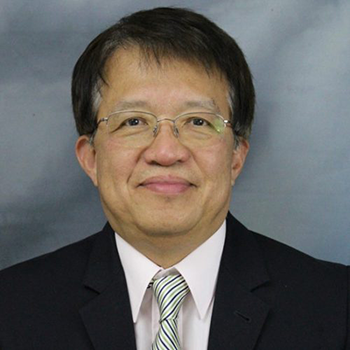
Fuh-Gwo Yuan, Ph.D.
North Carolina State University
Visualization of Hidden Damage in Composites from Full-Field Vibration Measurement Using a Stereo High-Speed Camera System
Yuan and his team will be testing a new method for detecting damage below the surface of composite materials. Because of their high strength-to-weight ratio and customizability, composites have been widely used in aerospace applications; however, inspection is a challenge because impact damage in these materials typically appears subsurface. Ultrasonic guided-wave-based techniques have shown potential for practical applications in structural health monitoring (SHM) for reducing the risks of catastrophic failures in critical structures like aircraft. These techniques work by exciting an ultrasonic wave in a structure and recording the resulting wave field. Algorithms are used to extract information about any damage present by studying how the waves interact with the damage.
Presently, measuring the wavefield requires scanning the whole area point-by-point, which can be very time-consuming. Due to recent advancements in IC technology, high-speed cameras can now be used for rapid wavefield reconstruction, as each pixel acts as like an individual sensor, so the entire wavefield can be captured instantaneously and extracted through digital image correlation (DIC).
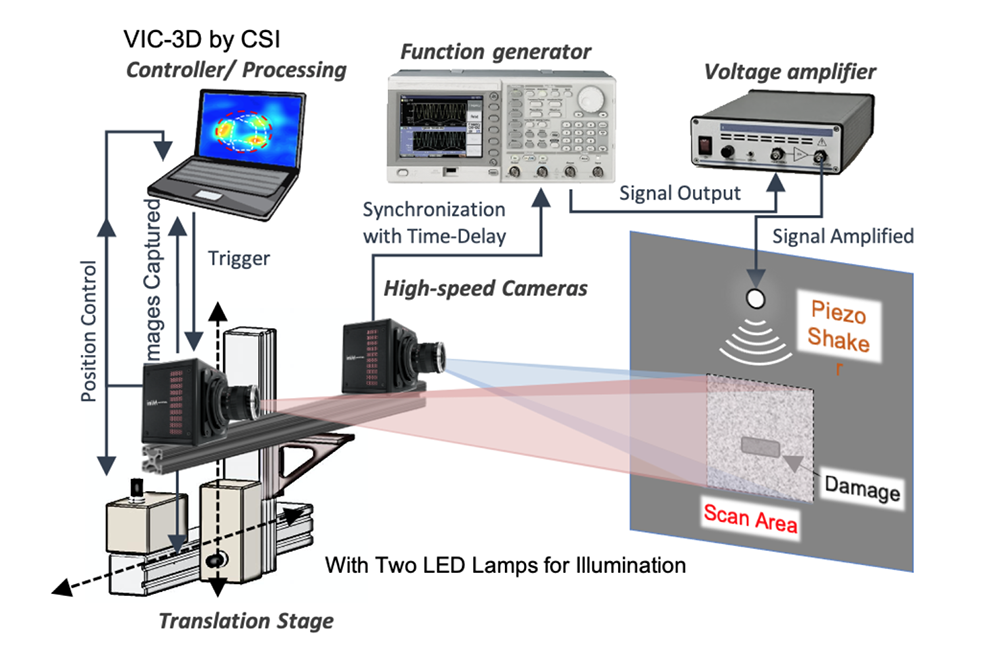
An integrated high-speed DIC system was recently developed that demonstrated damage quantification in an HDPE plate using a single high-speed camera to capture in-plane waves. The goal of Yuan’s research is to increase the capabilities of this system by implementing a second camera in a stereo setup to measure larger, out-of-plane displacements while also applying a piezoelectric shaker to excite larger waves. This will increase the signal so that damage can be found more easily in stiffer materials like composites, while using a larger field of view. Along with the exploration of advanced camera enhancement techniques and imaging algorithms, the methods Yuan will investigate will increase the versatility of the system and the quality of the damage image.
Yuan will be lending extra support to NC Space Grant 2020 summer intern Bryce Abbott’s research toward completion of his Ph.D. dissertation. During the research period, Yuan and Abbott will work collaboratively with researchers at the National Institute of Aerospace and NASA Langley Research Center. Yuan hopes the collaboration will lead to opportunities to extend support to more NC State students in the future.
- Categories:


